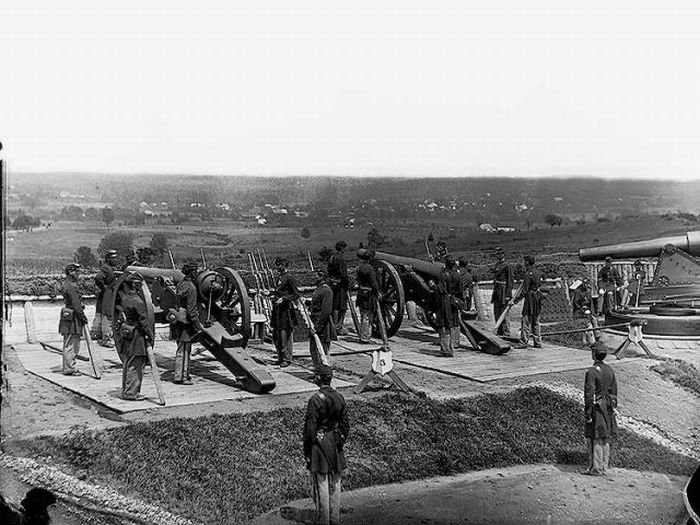|
|
History: American Civil War (1861-1865)
|
Southern concerns included not only economic loss but also fears of racial equality. The Texas Declaration of Causes for Secession said that the non-slave-holding states were "proclaiming the debasing doctrine of equality of all men, irrespective of race or color", and that the African race "were rightfully held and regarded as an inferior and dependent race". Alabama secessionist E. S. Dargan warned that whites and free blacks could not live together; if slaves were emancipated and remained in the South, "we ourselves would become the executioners of our own slaves. To this extent would the policy of our Northern enemies drive us; and thus would we not only be reduced to poverty, but what is still worse, we should be driven to crime, to the commission of sin."
Beginning in the 1830s, the US Postmaster General refused to allow mail which carried abolition pamphlets to the South. Northern teachers suspected of any tinge of abolitionism were expelled from the South, and abolitionist literature was banned. Southerners rejected the denials of Republicans that they were abolitionists. The North felt threatened as well, for as Eric Foner concludes, "Northerners came to view slavery as the very antithesis of the good society, as well as a threat to their own fundamental values and interests."
During the 1850s, slaves left the border states through sale, manumission and escape, and border states also had more free African-Americans and European immigrants than the lower South, which increased Southern fears that slavery was threatened with rapid extinction in this area. Such fears greatly increased Southern efforts to make Kansas a slave state. By 1860, the number of white border state families owning slaves plunged to only 16 percent of the total. Slaves sold to lower South states were owned by a smaller number of wealthy slave owners as the price of slaves increased.
Even though Lincoln agreed to the Corwin Amendment, which would have protected slavery in existing states, secessionists claimed that such guarantees were meaningless. Besides the loss of Kansas to free soil Northerners, secessionists feared that the loss of slaves in the border states would lead to emancipation, and that upper South slave states might be the next dominoes to fall. They feared that Republicans would use patronage to incite slaves and antislavery Southern whites such as Hinton Rowan Helper. Then slavery in the lower South, like a "scorpion encircled by fire, would sting itself to death."
|
|









